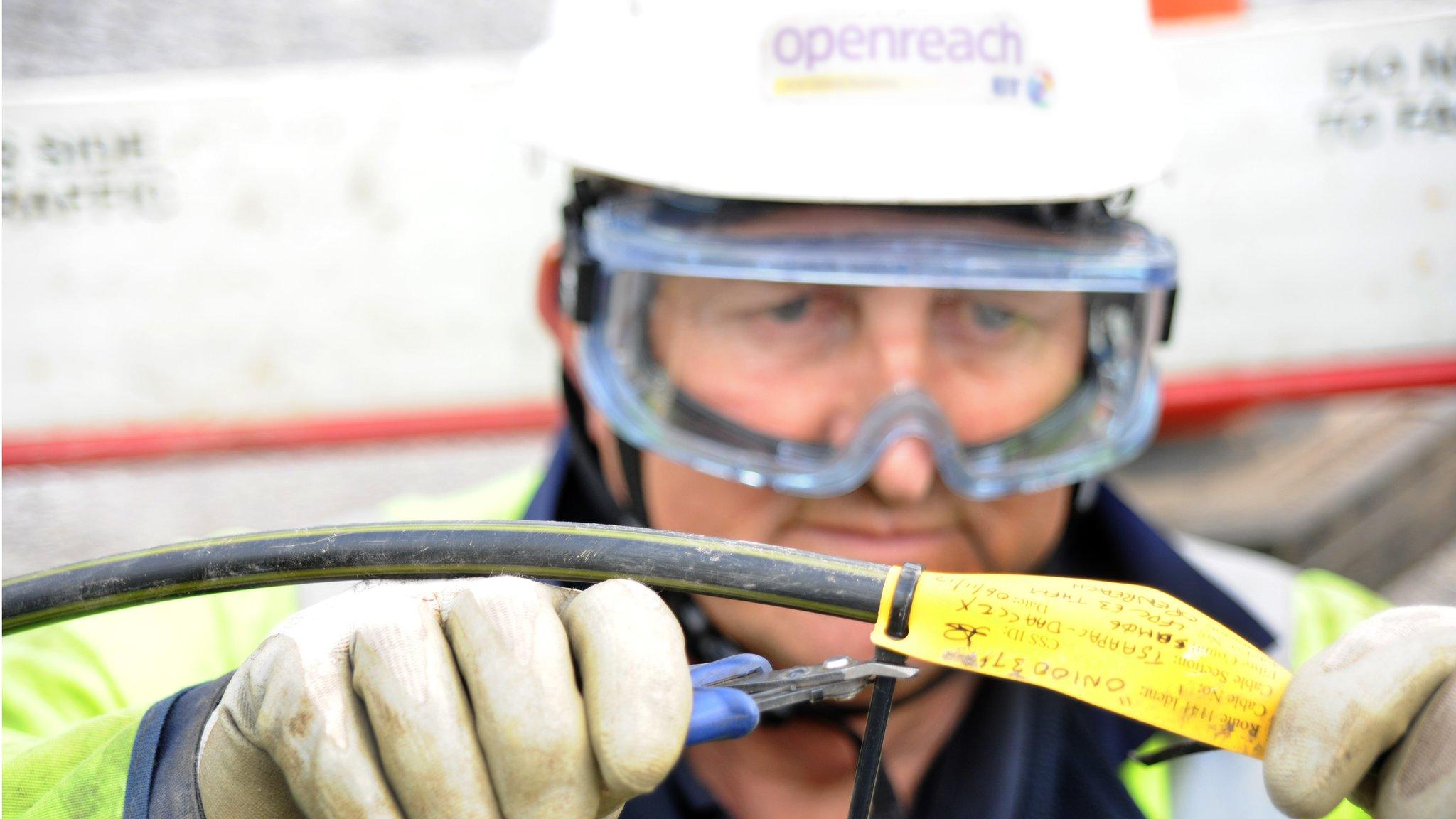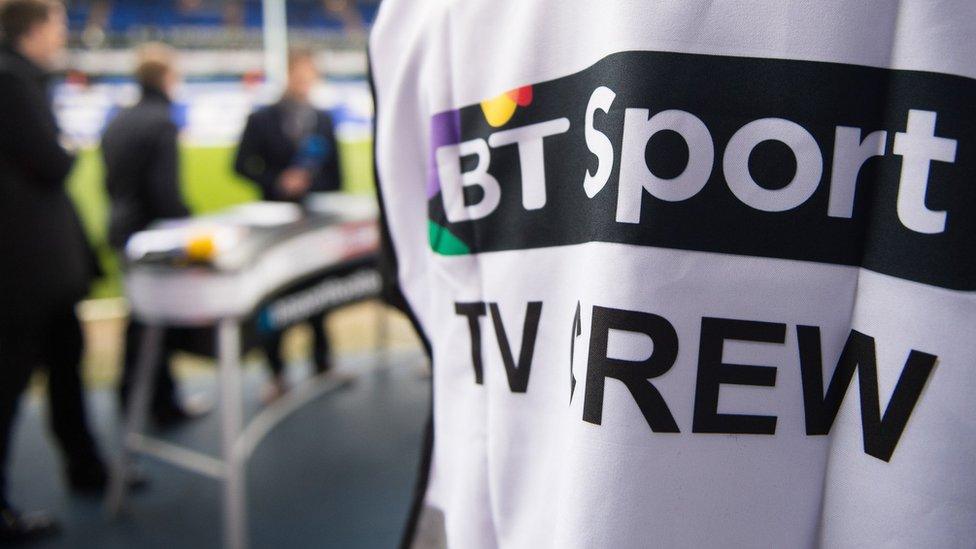Ofcom plans instant payback for broadband woes
- Published
- comments

Landline and broadband customers who suffer poor service could get money back automatically under plans set out by the telecoms regulator, Ofcom.
Under the proposals, they would no longer have to "fight tooth and nail" to get "fair compensation", Ofcom said.
The plan, which is now subject to consultation, could benefit up to 2.6 million customers, the regulator added.
The payments would apply whenever services go wrong and are not fixed quickly enough.
Slow repairs, missed deadlines and engineers' visits that fail to happen as promised would all be covered.
Ofcom said, external up to £185m could be paid out as a result.
Cash or credit
"Customers would be entitled to automatic compensation, without having to go through a potentially lengthy and difficult claims process," the regulator said.
They would receive either a cash payment or a credit on their bill, with the level of payments set by Ofcom.
The proposed scale of charges would be:
£10 for each calendar day that the service is not repaired
£30 for any time that an engineer fails to turn up for a scheduled appointment, or that it is cancelled with less than 24 hours' notice
£6 for each calendar day of delay at the start of a new service, including the missed start date.
"When a customer's landline or broadband goes wrong, that is frustrating enough, without having to fight tooth and nail to get fair compensation from the provider," said Ofcom's consumer group director, Lindsey Fussell.
She said the proposals "would mean customers are properly compensated, while providers will want to work harder to improve their service".

Ofcom said its consultation period on the proposals would last until 5 June. It will then publish its decision "around the end of the year".
In response to the plan, BT, Sky and Virgin Media have issued their own draft proposal for automatic compensation through a voluntary code of practice.
However, Ofcom said: "At this stage, we do not consider that this proposal sufficiently meets our concerns."
Ofcom said that each year, there were 7.2 million instances that would be subject to compensation under its new proposals, but that currently, only 1.1 million of these attracted payments.
In response to the Ofcom proposals, a Virgin Media spokesperson said: "It's important that customers are treated fairly when services can't be delivered, but this is best achieved through a robust industry-led approach.
"The industry is working together on ambitious reforms that would incentivise communications providers to compete to provide customers with a better service, while also setting minimum standards that providers would have to meet."
Another broadband provider, TalkTalk, said: "We welcome measures to make it easier for consumers to be reimbursed when things go wrong.
"In principle, we're broadly supportive of Ofcom's measures, but it's important that any scheme is fair and transparent and based on a set of minimum standards that guarantees every line is capable of providing the broadband customers depend on."
'Better deal'
Ofcom's proposals were welcomed by the Minister of State for Digital and Culture, Matt Hancock.
"Too many people are suffering from poor customer service when things go wrong with their broadband and phone lines," he said.
"So getting a better deal for consumers is at the heart of our Digital Economy Bill, which strengthens Ofcom's power to make sure providers pay compensation when service falls short.
"These changes will help make sure people are not cut off from friends, family and work for days on end, and are properly compensated if problems aren't fixed quickly enough."
Alex Neill, of consumer group Which?, said: "Broadband has become a modern day essential, so it is only right that consumers should get compensation when their provider fails to deliver.
"Ofcom now needs to swiftly push ahead with these proposals and ensure that this and other measures help to significantly improve the service that broadband customers receive," he said.
- Published22 March 2017

- Published10 March 2017

- Published28 February 2017

- Published20 January 2017

- Published18 January 2017
